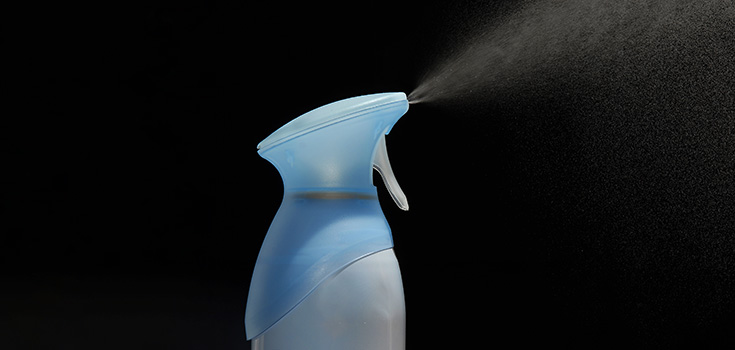Are Air Fresheners Contributing to Poor Health and Sickness?

It seems automatic air fresheners and scented sprays can be found almost anywhere in this day and age. These aroma-emitting devices can be found in any home, school, or work and simply serve to enhance the scent in the area. But since the chemicals used in the products are emitted in the air as well, people are unknowingly experiencing a health decline, all for pleasant aromas.
Air Fresheners Contribute to Poor Health and Make You Sick
Air freshener use has really risen in the past couple years. Procter & Gamble Co’s Febreze hit over $1 billion in sales in 2011, with people around the world experiencing the scent-enhancing product. The problem with air fresheners is that they contain a number of harmful ingredients that contribute to many health problems.
One toxic ingredient which can be found in many air fresheners is known as formaldehyde. This health hazardous ingredient can irritate the eyes and nose and cause allergic reactions in the skin, eyes and lungs. It’s also linked to nose and lung cancer, which is are among the reasons government scientists list formaldehyde as a carcinogen.
According to the EPA:
“Air fresheners are usually highly flammable and also strong irritants to eyes, skin, and throat. Additionally, the solid fresheners usually cause death if eaten by people or pets.”
Although the quote from the EPA ends with mention of death if air fresheners are ingested, the statement does not cover the chemicals or all the problems revolving around the household helpers. Phthalates — an industrial chemical commonly found in plastics worldwide — is also largely present in air fresheners.
With an emphasis on reproductive health and the health of young children, the phthalates have been shown to cause many health complications. Not only could they increase the risk of developing both allergies and asthma in children, but the industrial chemical also causes neurological problems as a result of exposure.
Some stores such as Abercrombie and Fitch have even taken some heat for their toxic automatic perfume sprayers. In 2010 a group of teens in California protested against perfume pollution. The teens wore surgical masks, gas masks, and carried signs expressing their anger towards certain toxic perfume ingredients. Needless to say, the same ingredients are being released into the air of your home from air fresheners, contributing greatly to your own indoor pollution.
While air fresheners may add a positive aspect of pleasant smells to a room, is their purpose really justifiable given the numerous negative effects they have on human health and the environment. When comparing the positive and negative aspects air fresheners have, they just don’t seem to be an acceptable modern day creations.
